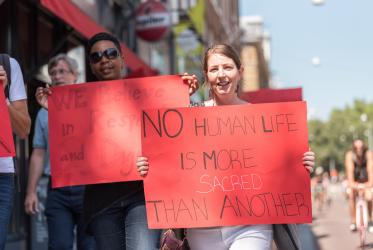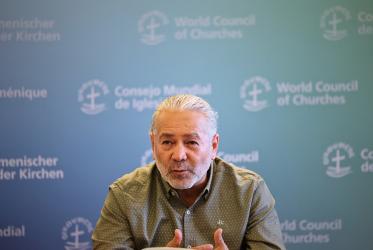The World Council of Churches (WCC), with the Korea Institute for National Unification, reflected on international cooperation for improvement of human rights and ecumenical cooperation for diakonia ministry in North Korea.
The WCC and the institute co-hosted the 2019 Europe Forum on 10 May at the Ecumenical Centre, focusing on international cooperation for improvement of human rights and humanitarian aid in the Democratic People’s Republic of Korea. The institute aims to support the establishment of the government’s unification policies by providing in-depth and systematic research and analysis on unification issues.
Peter Prove, director of the WCC Commission of the Churches on International Affairs, presented an overview of ecumenical efforts to resolve humanitarian issues resulting from the division of the nation; the dialogue with the Democratic People’s Republic of Korea regarding improvement of human rights; and international cooperation for diakonia ministry. “The WCC has strengthened its support and commitment to increase ecumenical efforts for peace, reconciliation and reunification on the Korean Peninsula. The WCC calls for the economic sanctions to be lifted immediately, which would resolve humanitarian issues and human rights issues,” said Prove.
In reviewing recommendations of human rights by United Nations member states to the Democratic People’s Republic of Korea, Dr Bo Hyug Suh, director of the Korea Institute for National Unification, stated that the Democratic People’s Republic of Korea seems to be better promoting human rights, and he also referred to the ongoing work to implement inter-Korean agreements and the relaxation of sanctions concerning humanitarian aid to support people’s livelihood.
In a message, Erich Weingartner, representative of a Canadian interactive resource on North Korea, CanKor, articulated “restorative justice” as a long-term relationship of trust. “With a restorative justice approach we have the possibility of influencing these changes toward greater human rights and human dignity,” said Weingartner.








